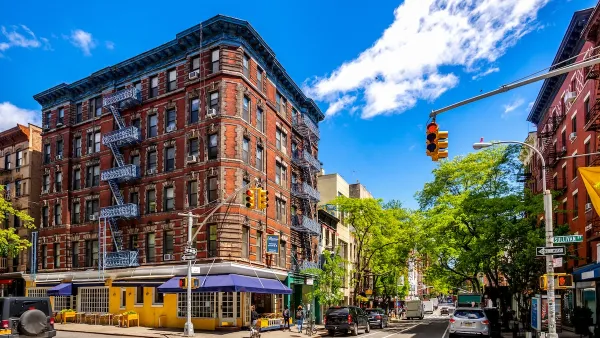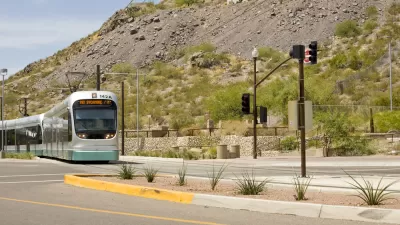As Wellington 'Duke' Reiter notes, for the past several decades Phoenix has shown it expertise in horizontal growth. But, as development heats up again after the Great Recession, he says the city's growth must be managed to increase density.
Reiter, the senior vice president of the ASU Foundation and vice chairman of the Urban Land Institute Arizona, summarizes the discussion as a recent event organized by ULI Arizona called “Here We Grow Again.” "While the demographic evidence at this conference suggested that we should brace for expansion, there was a parallel and equally compelling theme featuring exactly the opposite imperative: How small can you make your city?"
Density, Reiter explains, is valued by today's business leaders, and is crucial to remaining competitive in attracting employers and employees. "Companies built on innovation are seeking a place with a sense of identity, public transportation, restaurants, cultural venues and, if at all possible, a compelling blend of the old and the new," he notes.
"The challenge for the Phoenix region is simple: Will our considerable footprint — one that has been enabled by the automobile and access to moderately priced housing, fuel and water — be our destiny? Can our archipelago of loosely coordinated municipalities compete with more cohesive offerings by other cities?"
"Most importantly, can we invest strategically and even disproportionately in key institutions and select areas that represent only a percentage of the total landmass of the Phoenix area but which could be transformative for the entire region?"
"The answer has to be yes."
FULL STORY: To grow up, Phoenix must grow small

Maui's Vacation Rental Debate Turns Ugly
Verbal attacks, misinformation campaigns and fistfights plague a high-stakes debate to convert thousands of vacation rentals into long-term housing.

Planetizen Federal Action Tracker
A weekly monitor of how Trump’s orders and actions are impacting planners and planning in America.

In Urban Planning, AI Prompting Could be the New Design Thinking
Creativity has long been key to great urban design. What if we see AI as our new creative partner?

King County Supportive Housing Program Offers Hope for Unhoused Residents
The county is taking a ‘Housing First’ approach that prioritizes getting people into housing, then offering wraparound supportive services.

Researchers Use AI to Get Clearer Picture of US Housing
Analysts are using artificial intelligence to supercharge their research by allowing them to comb through data faster. Though these AI tools can be error prone, they save time and housing researchers are optimistic about the future.

Making Shared Micromobility More Inclusive
Cities and shared mobility system operators can do more to include people with disabilities in planning and operations, per a new report.
Urban Design for Planners 1: Software Tools
This six-course series explores essential urban design concepts using open source software and equips planners with the tools they need to participate fully in the urban design process.
Planning for Universal Design
Learn the tools for implementing Universal Design in planning regulations.
Appalachian Highlands Housing Partners
Gallatin County Department of Planning & Community Development
Heyer Gruel & Associates PA
Mpact (founded as Rail~Volution)
City of Camden Redevelopment Agency
City of Astoria
City of Portland
City of Laramie





























